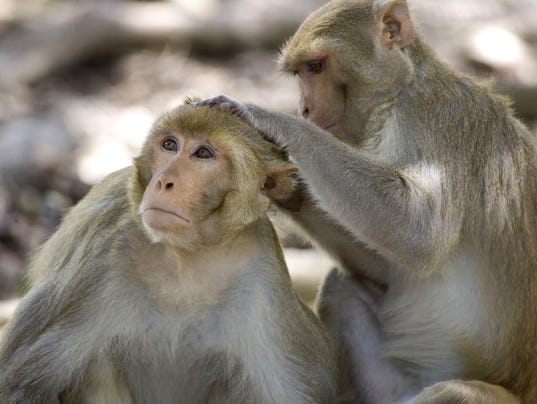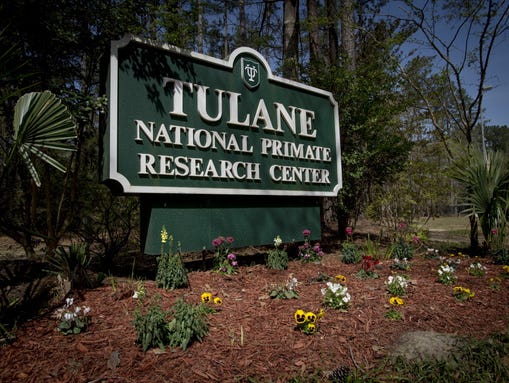Officials are investigating how a deadly type of bacteria was released from a high-security laboratory at the Tulane National Primate Center in Louisiana. Officials say there is no risk to the public.
A dangerous, often deadly, type of bacteria that lives in soil and water has been released from a high-security laboratory at the Tulane National Primate Research Center in Louisiana. Officials say there is no risk to the public. Yet despite weeks of investigation by multiple federal and state agencies, the cause of the release and the extent of the contamination remain unknown, according to interviews and records obtained by USA TODAY.
The incident has raised concerns that bacteria from the lab may have contaminated the facility's grounds and though initial, limited tests didn't detect it, some officials are pressing behind the scenes for more action, records show. The safety breach at Tulane's massive lab complex 35 miles north of New Orleans is the latest in a recent series of significant biosafety accidents at some of the most prestigious laboratories in the country where research is performed on bacteria and viruses that are classified as potential bioterror agents.
 |
| Rhesus macaques are the type of monkey that was exposed to the bacteria. (Photo: Brennan Linsley, AP) |
"The fact that they can't identify how this release occurred is very concerning," said Richard Ebright, a biosafety expert from Rutgers University in New Jersey, who testified before Congress last summer in the wake of lab incidents at federal agencies involving anthrax, smallpox and a deadly strain of avian influenza.
 |
| CLICK MAP to ENLARGE |
The Tulane incident involves the release, possibly in November or earlier, of a bacterium called Burkholderia pseudomallei, which is primarily found in Southeast Asia and northern Australia and is spread to humans and animals through direct contact with contaminated soil and water where it can live and grow. Tulane's research, which has been halted by federal officials, was part of an effort to develop a vaccine against the bacteria. It was conducted mostly with rodents inside a secure biosafety level 3 laboratory with multiple layers of safety equipment that were supposed to ensure the pathogen couldn't get out.
Yet at least four monkey-like rhesus macaques — that were never used in the experiments and were kept in large outdoor cages in another part of the 500-acre facility — have been exposed to the bacteria, initial tests have found. Two of the macaques became ill in November; both eventually had to be euthanized. Meanwhile, a federal investigator, who became ill 24 hours after visiting the facility in January as part of the ongoing release investigation, has also tested positive for exposure to the bacteria — though it remains unclear whether her exposure may have occurred during international travel and not at the lab.
"We're taking this extraordinarily seriously. It's very disturbing to us," said Andrew Lackner, director of the Tulane primate center. "Right from the beginning we've spent an enormous amount of time trying to figure out how this could have happened."Read the rest of the story HERE and view a related video below:
If you like what you see, please "Like" us on Facebook either here or here. Please follow us on Twitter here.



No comments:
Post a Comment